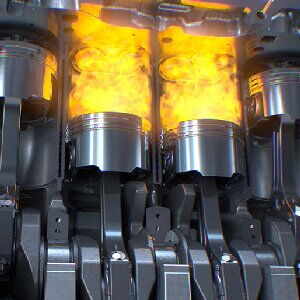How to Eliminate Annoying Cylinder Knocking in Diesel Generators
On this page
Diesel generators are crucial in modern industry, but issues like cylinder knocking can disrupt their operation. Cylinder knocking occurs when uneven grooves form along the cylinder wall in the piston's direction, causing air leakage and knocking noises. This not only affects the power and efficiency of a diesel generator but can also lead to piston seizure, causing engine failure. To address this issue, the following is a detailed analysis of the causes and treatment methods for cylinder knocking.

Cylinder knocking is a complex problem that often results from multiple factors during the operation of diesel generators. Below is a detailed analysis of the main causes of cylinder knocking.
- Improper Operation: Failure to operate according to specifications during the generator's break-in period, including running the diesel engine at overload, excessively high temperatures, and damaging the lubricating oil film between the cylinder and piston (ring), leading to scratching between the piston ring and cylinder wall. In severe cases, the piston may expand excessively, causing it to jam against the cylinder wall and result in more serious scratching.
- Inadequate Maintenance: Failure to timely remove carbon deposits from the piston rings, causing the piston rings to lose elasticity and increase friction between the piston and cylinder wall, leading to scratching.
- Improper Repair: Improper assembly during maintenance, resulting in a too-small gap between the piston and cylinder wall or a too-small end gap of the piston ring, increasing friction between the piston and cylinder wall, leading to scratching.
- Damage to Piston Rings: Fracture of piston rings or detachment of piston pin retaining springs may cause the piston to suddenly move in the cylinder, damaging the cylinder wall and causing scratching.
- Faulty Cooling or Lubrication Systems: Malfunctions in the generator's cooling or lubrication systems can lead to poor cylinder cooling and lubrication, exacerbating friction between the piston and cylinder wall and increasing the risk of scratching.
- Sudden Increase in Load: A sudden increase in load during cold starts or low temperatures can cause poor fuel atomization, resulting in excessive fuel entering the cylinder, washing away the lubricating oil film on the cylinder wall, and causing scratching.
- Deformation of Connecting Rods: Deformation of the connecting rods connecting the piston to the crankshaft can cause the piston to tilt in the cylinder, increasing friction between the piston and cylinder wall and causing scratching.
To address the issue of cylinder knocking in diesel generators, meticulous diagnosis and effective treatment methods are required to ensure the normal operation and performance of the generator.
1. Early Stage Cylinder Knocking
Clean and inspect the piston connecting rod assembly, replace the engine oil and oil filter element, and clean the oil pan. After break-in, the sealing of the cylinder will improve, but the power will not be as good as before the cylinder knocking occurred.
2. Mid-Stage Cylinder Knocking
In mid-stage knocking, air leakage is severe, manifesting as clear abnormal noises, visible emission of a large amount of smoke, and poor idle speed. Use the oil cut-off method to inspect; if the abnormal noises decrease, it is more likely to be cylinder knocking. For shallow scratches, polish the cylinder wall, replace the piston and piston rings to reduce abnormal noises.
3. Late-Stage Cylinder Knocking
In late-stage knocking, there are obvious knocking and air leakage sounds, a significant decrease in power performance, and an increase in noise when the speed increases, with possible engine shaking. This may lead to piston breakage in the cylinder or damage to the cylinder body, necessitating replacement of the cylinder liner, piston, and piston rings.
Cylinder knocking is a common problem with diesel generators, but timely detection and proper treatment methods can effectively prevent its adverse effects on generator performance and lifespan. Therefore, during the use and maintenance of diesel generators, attention should be paid to standardized operation, regular inspection, and maintenance to ensure stable and efficient operation.
